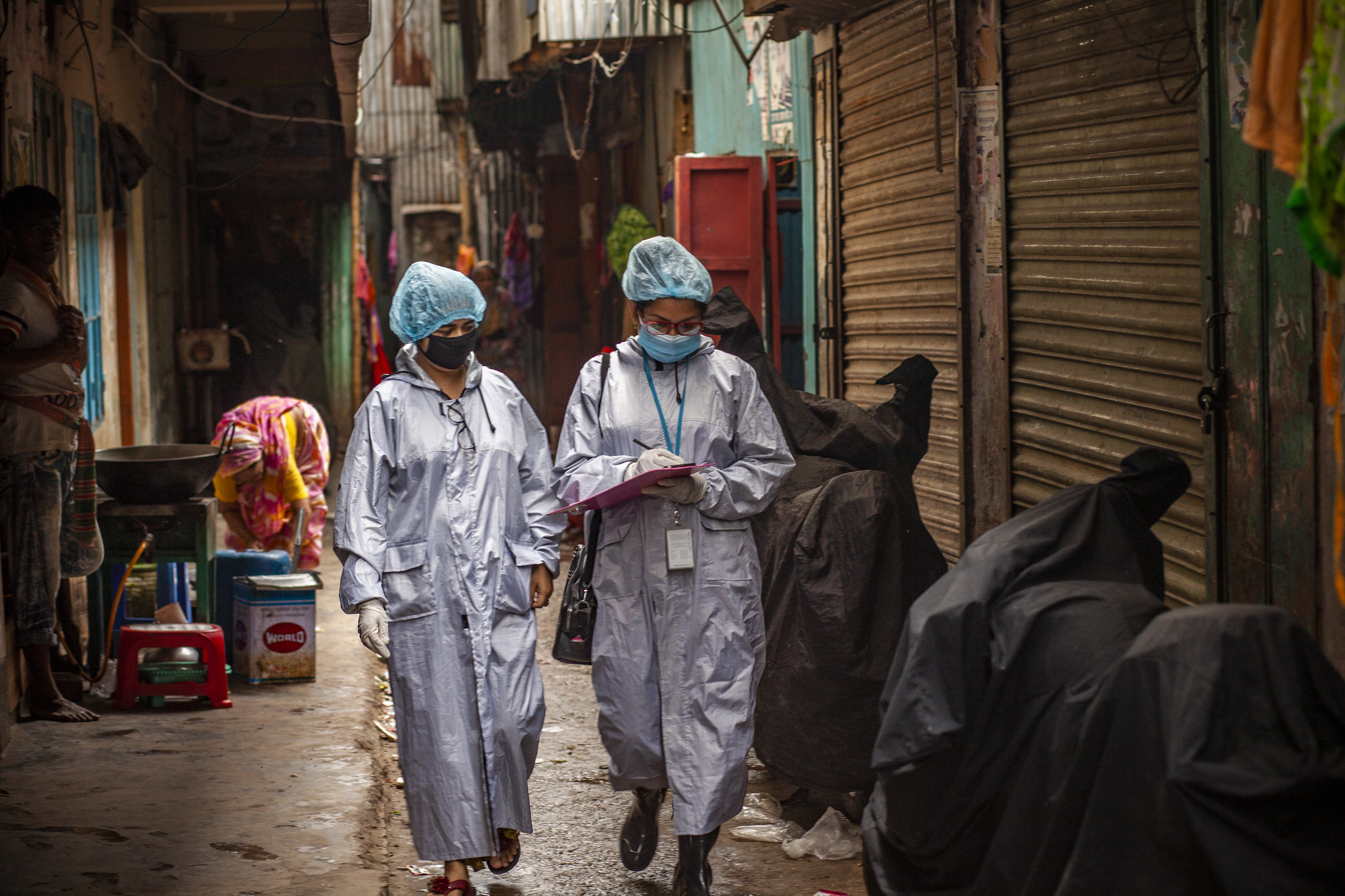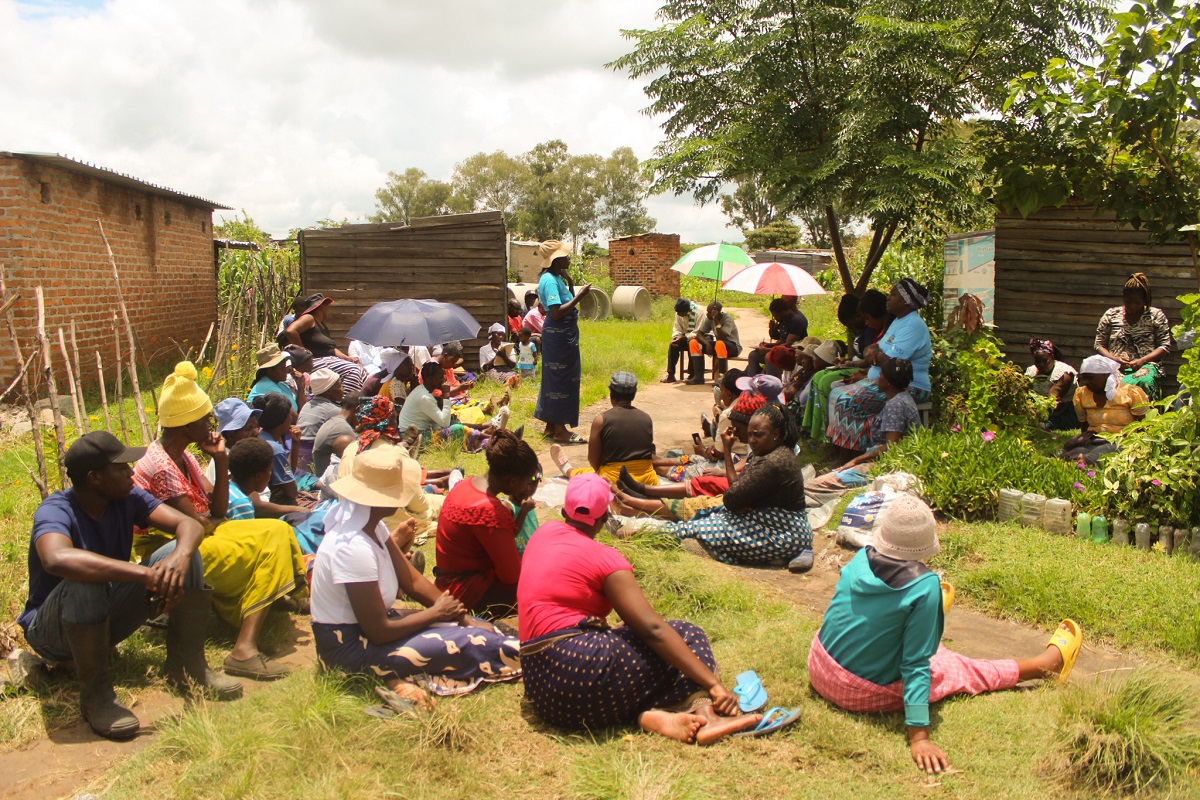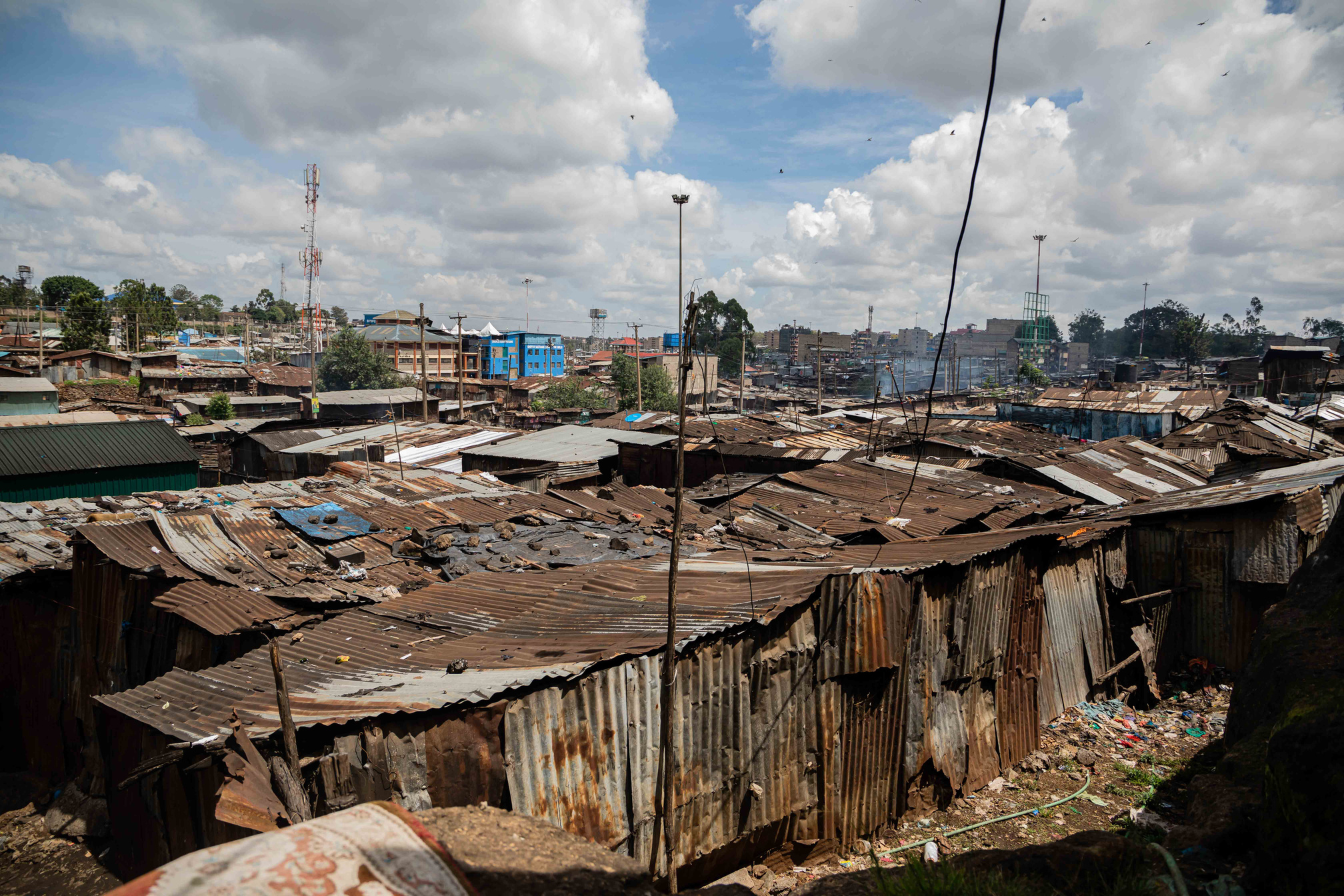Recently, Bangladeshi social media has been flooded with snapshots of people proudly announcing their vaccinated status in a valiant attempt to allay the vaccine hesitancy amongst the wider population. However, the impact of these online campaigns and the extent to which the online registration – a requirement for vaccination- process is accessible for people at the margins in this vaccination programme, demands a careful analysis.
As of July 8, 2021, 4.28 million people in Bangladesh have been fully vaccinated (2.6% of total population), with 5.82 million receiving at least one dose of the Covid-19 vaccine (3.6% of total population). However, there is no reliable data that provides a more in-depth profile of the vaccine recipients based on their economic status, gender, age, location or ethnicity. Or, in other words, we don’t know who is falling off the vaccine grid. In particular, there are strong concerns about what happens at the margins where millions who are historically disadvantaged, structurally marginalised, and politically disempowered reside.
As an institution committed to building just, peaceful and inclusive societies, the Centre for Peace and Justice (CPJ) at Brac University strongly believes that the vaccine roll-out should be analysed through a critical lens of social justice, especially in understanding and amplifying voices of the marginalised in Bangladesh. CPJ is currently undertaking a collaborative research project titled, ‘Voices from the Margins and Inclusive Policy Responses to Covid-19 Pandemic’ with the Covid Collective to elicit feedback from marginalised groups in Bangladesh. This research aims to draw evidence from the marginalised community on their needs, aspirations, perceptions and satisfactions towards the relief, recovery and resilience programme undertaken by the government to address the Covid-19 pandemic.
Information gaps and the digital divide
Exploratory Focus Group Discussions (FGDs) with the economically disenfranchised people from urban slums, rural areas, indigenous communities, disabled communities and different women groups conducted during February, 2021 as part of the research efforts, have shed some light into the information gaps and the ever widening digital divide problems as evidenced by these groups’ inability to access and in some instances, complete unawareness of the online registration process; the most crucial step to access the vaccine. This leads us to the question of how digitally ready we are as a nation to plan and implement a successful vaccination drive that involves online registration.
According to the National ICT Household Survey, access to the internet and technological devices is very limited for the rural community (34.8%) and elderly population aged more than 60 (2.7%). Women (34.2%) also lag far behind their male counterparts (53.2%) in using the internet, accounting for a digital gender gap of 55.6%. Given these realities, an online based registration process runs a heavy risk of excluding a huge number of people living as a digital immigrant or those excluded due to a lack of access to devices or a connection. Those who are highly vulnerable to contracting and dying from the virus due to their age, living condition, work involvement etc., are the least informed and most ill-equipped to navigate through the digital portal to access the vaccine.
Disparate knowledge about Covid-19
From the focus group discussions, it is quite evident that participants’ understanding of Covid-19 and their understanding of the vaccine represents two ends of a spectrum. Through the tremendous efforts from the government and other actors to raise awareness of Covid-19, both online and offline, these communities at the margins have a good grasp of the virus – especially, on the ways of transmission, on prevention, about the symptoms and treatment. Irrespective of the mode of access, it is safe to surmise that people were at least provided with basic information on the virus and safety protocols since the onset of the outbreak.
However, the absence of information flow on the Covid-19 vaccine amongst these marginalised communities was clear, with most of them not knowing that the vaccine is provided free of cost. The extreme consequence of inadequate information was shown amongst the elderly women group living in poverty in rural areas. With no or very little access to the media and internet, these elderly women are so scared of the vaccine that they literally ran away from the group discussion the moment we mentioned the word ‘vaccine’. The slum elderly people, also devoid of digital exposure, are predisposed to the superstitions and beliefs when it comes to Covid-19 or its vaccine. One of the elderly participants told us: “Coronavirus cannot infect us because we live in the tin-shade hut which very hot, unlike the concrete made buildings and the air-conditioned rooms. Coronavirus is a rich-man disease; slum people have strong immunity so we cannot be infected by the coronavirus.”
Information on vaccine delivery is even more inconsistent in the remote rural areas. The poor communities living in these locations tend to think that the vaccine will be provided at their nearest government hospitals or at door steps on demand, being totally unaware of the online registration process.
A complex registration process
The registration process poses a great challenge to ensuring equal access to the vaccine not just because of the information gaps and asymmetries, but also because it can be a very complex process for these marginalised communities especially for the digitally unschooled (a total lack of digital knowledge in the context of Bangladesh) or for the digital immigrants. Being uncomfortable with or being totally unaware of navigating through different websites and links, these groups will find it very difficult to complete the process.
There is a strong nexus between the information gap and the digital divide. The existing digital divide is increasing the information gap since most information on Covid-19 and vaccination are circulated digitally, in the process excluding the digital immigrants, digital unschooled and the marginalised in general. The technological barriers in terms of not owning either a device to log into the internet or having access to internet services along with the inadequate knowledge to navigate through such processes make it almost impossible for these marginalised groups to be part of the vaccination programme.
From a social justice and equity perspective, leaving no one behind is not just a slogan, but a prerequisite for upholding universal rights to life and livelihood. Addressing the last mile problem is extremely critical for our collective development and our shared future.


